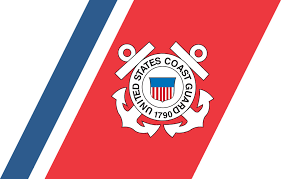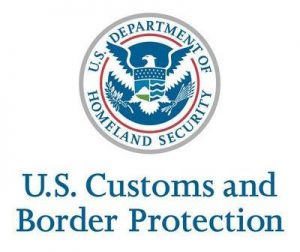SUBJECT: Carriers’ and Importers’ Responsibility Relating to Bulk Cargo Releases
Section 1: Carriers’ Responsibilities Relating to Bulk Cargo
References: 19CFR4.12, 19CFR141.68(a)(1), 19CFR151.41-47, and 19CFR158.47
The purpose of this section is to advise vessel carriers of their responsibilities associated with the arrival and discharge of bulk commodities.
The importing carrier, steamship company, or their agent will include an entry number (CBP Form 3461 / CBP Form 7512) on the CBP Form 3171, Application — Permit — Special License Unlading — Lading — Overtime Services, for each bill of lading on a vessel carrying bulk commodities. If a CBP Form 214 is filed on the cargo, a copy of the CBP Form 214 signed by a CBP Officer will be provided prior to notice of arrival. When an e-214 is filed a printout of the e214 or the bill of lading number will be provided for verification of entry and release of cargo prior to notice of arrival. No vessel will be allowed to discharge (i.e., preliminary entrance will not be granted for cargo operations) without evidence an entry has been prepared for all cargo to be discharged. If the steamship company or their agent fails to provide such information and the cargo is discharged without an entry being filed, the steamship company or their agent is subject to a penalty for delivery without authorization.
Bulk carriers must account for all manifested quantities. Failure to do so could result in issuance of a penalty. Carriers are strongly encouraged to file any required Manifest Discrepancy Report (MDR) immediately to avoid a penalty action for failure to manifest and discharge without a permit for any excess cargo. However, for petroleum and petroleum products, the carrier must file an MDR and provide and explanation of the discrepancy only if the discharged quantity differs from the manifested quantity by more that 1%.
The delivered quantity is restricted to the amount of bulk cargo annotated on the entry (CBP Form 3461, inbond document, or CBP Form 214). Any quantity delivered in excess of the entered amount(s) will subject the carrier to a penalty for delivery without authorization.
Slops must be manifested and an entry filed prior to discharge. Failure to do so may result in penalty action.
CBP will perform periodic audits of carrier record(s). Records will be reviewed to verify cargo was properly manifested and delivery was authorized for all the entered quantity. The carrier’s file(s) must include a perforated or signed copy of the CBP Form 3461, inbond document, or approved CBP Form 214.
Section 2: Importers’ Responsibilities Relating to Bulk Cargo
References: 19CFR141.68(a)(1). 19CFR151.12, 19CFR151.41-47, and 19CFR158.13
The purpose of this section is to advise importers and filers of the responsibilities associated with preparation and presentation of the entry and entry summary for bulk commodities.
The Customs and Border Protection Trade Teams process entries for liquid or dry bulk in the Area Port of New Orleans. CBP determines on a selective basis when it is necessary to witness vessel ullages, shore tank gauges and sample bulk cargo.
Discharge of bulk cargo constitutes delivery of the cargo; therefore, no discharge is allowed without an entry being filed. The entry requirements are satisfied by an ABI certified entry, a non-ABI entry, a CBP Form 214, or in-bond document. Failure to present the CBP Form 3461, when required, subjects the filer to a penalty for delivery without authorization. On those occasions when an ABI filer is unable to process the entry via ABI, the CBP Form 3461 and invoice(s) or a facsimile of these documents will be accepted. Failure to do so may result in penalty action.
Non-ABI filers must present and obtain release on an entry to CBP prior to commencement of discharge. Failure to do so may result in penalty action. A CBP Form 214, or inbond document must also be presented to CBP prior to commencement of discharge and the filer must obtain a signed or perforated CBP Form 214 or inbond document before discharge can commence.
The importer or filer should provide entry information to the steamship company or their agent so the entry number (CBP Form 3461 / CBP Form 7512) can be included on the CBP Form 3171. Application — Permit — Special License Unlading — Lading — Overtime Services, for each bill of lading on a vessel carrying bulk commodities. No vessel will be allowed to discharge (i.e., preliminary entrance will not be granted for cargo operations) without evidence that an entry has been filed for all cargo to be discharged.
Importers and brokers preparing entry summaries shall use the outturn report supplied by the CBP-approved public gauger and the analysis provided by the CBP-accredited commercial laboratory to determine the date of entry (time discharge began), actual delivered net quantity, and appropriate classification. The entry summary package should include the original copy of the outturn report. At a minimum, the outturn report should contain: the summary sheet, a time line of activities, vessel ullages prior to and after discharge, shore tank(s) gauges prior to and after discharge, or metered quantities, and the lab analysis of the product. When a summary is designated as paperless, the entry summary on file at the filer’s office will contain a copy of the signed outturn report. In the absence of clear evidence of inaccuracy, the Port Director will accept the outturn reports and analyses as determined by a CBP-approved public gauger and CBP-accredited commercial laboratory.
Instead of stating the gross quantity of petroleum or petroleum products on the entry summary, the importer may state the net quantity. The analytical report from the CBP-accredited commercial laboratory will be filed with the entry summary (19CFR151.47). However, claims for free water of BS&W in petroleum or petroleum products must be made in accordance with 19CFR151.13.
Slops must be manifested and an entry filed prior to discharge. Failure to do so may result in penalty action.
Importers or the CBP approved public gauger is responsible for retaining samples on all importations of bulk petroleum and petroleum-related products for 4 months from the date of the laboratory’s final analysis report.
Importers seeking approval of metering and sampling installations will send a complete description of the installation to the port director who, with the concurrence of the Director, Laboratory and Scientific Services, or his designee, shall give approval or shall state, in writing, the reasons for disapproval. Approved installations are subject to periodic verification by CBP. Importers desiring to modify a CBP-approved installation shall obtain CBP approval beforehand.
If you have any questions regarding this notice, please contact Merlin Hymel, Assistant Port Director, Trade at 504-670-2088.


